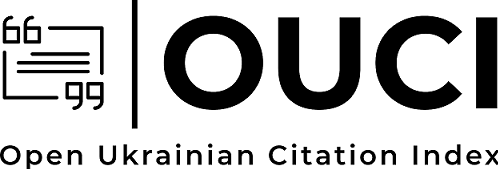Mass Arrivals of Poles in the 1980s as a Symptom of Political and Economic Changes in the Eastern Bloc
DOI:
https://doi.org/10.28925/2524-0757.2021.210Keywords:
Eastern bloc, Soviet Ukraine, People’s Republic of Poland, last decade of the USSR, voyage, Ukrainian-Polish contactsAbstract
The article concerns the subject of mass Ukrainian-Polish contacts in the last decade of the USSR. Documents produced by the Polish consular services and the political police allow for the study of Poles’ travel across the eastern border. They were visiting Ukraine e.g. as employees of cultural and commercial institutions, construction companies, participants of official delegations, students of Soviet universities, trainees, participants of trips and — the most frequent — individual tourists. The most important were informal contacts, almost all visitors tried to trade illegally. The intensification of these trips (in 1988 Ukraine was visited by 700,000 Poles), their circumstances and character were the effect of the progressive disintegration of the communist system, which had been taking place in Poland since 1980 and in Ukraine since 1985. The deepening economic crisis increased interest in the transportation of goods across the border and their illegal sale as a source of household supplies or income. Weakening state structures were unable, or unwilling, to effectively counteract this practice. The progressive liberalization of travel regulations increased the number of visitors, who were interested not only in business but also in Ukraine’s past and culture, especially in monuments of Lviv. Poles sometimes demonstrated their critical attitude to the Communist regime, manifested freedom or religious attitudes and often broke harsh Soviet rules. The militia and secret service found them to be troublesome guests. However, non-political people-to-people contacts, virtually nonexistent after WWII, were established and renewed then. These relations developed into close neighborly cooperation after the fall of the USSR.
Downloads
References
Broda, M. (2016). Pieriestrojka znaczy smuta? O mentalno-społecznym kontekście sposobu pojmowania przez Rosjan gorbaczowowskich przemian, Eastern Review, 5, 69–81 [in Polish]. DOI:https://doi.org/10.18778/1427-9657.05.06
Drawicz, A. (1995). Nasze widzenie Rosjan w XX wieku. Dzieje Najnowsze, 27 (2), 37–41 [in Polish].
Hrycak, J. (2000). Historia Ukrainy 1772–1999. Narodziny nowoczesnego narodu. Lublin: Instytut Europy Środkowo-Wschodniej [in Polish].
Jarosz, D. (2006). Reakcje społeczne na niedobory mięsa w Polsce w latach 1945–1989 (zarys problematyki), Polska 1944/1989. Studia i Materiały, 7, 223–266 [in Polish].
Jędraszczyk, K. (2020). Polityka pamięci i konflikt o miejsca pamięci w praktyce bilateralnej. In I. Ksenicz, K. Wasilkiewicz (Eds.), W kręgu gnieźnieńskiej humanistyki, (pp. 31–72). Poznań: Wydawnictwo Naukowe UAM [in Polish].
Kochanowski, J. (2010). Tylnymi drzwiami. „Czarny rynek” w Polsce 1944–1989. Warszawa: WAB [in Polish].
Maksimczuk, A., Sidorowicz, L. (2008). Polska granica wschodnia w warunkach transformacji (wybrane aspekty). Białystok: Wydawnictwo Wyższej Szkoły Ekonomicznej [in Polish].
Marples, D. (1991). Ukraine under Perestroika: Ecology, Economics and the Workers’ Revolt. New York: Palgrave Macmillan [in English].
McFaul, M. (2001). Russia’ Unfinished Revolution. Political Change from Gorbachev to Putin. Ithaca–London: Cornell University Press [in English].
Piotrowski, J. (2015). Przemiany niepodległościowe na Ukrainie w świetle polskiej publicystyki w latach 1988–1994. Świat idei i polityki, 14, 306–331 [in Polish].
Rychard, A. (1987). Konflikt i przystosowanie: dwie koncepcje ładu społecznego w Polsce. In M. Marody, A. Sułek (Eds.), Rzeczywistość polska i sposoby radzenia sobie z nią (pp. 89–108). Warszawa: Wydawnictwo Uniwersytetu Warszawskiego [in Polish].
Słabek, H. (2014). O społecznej historii Polski 1945–1989, Warszawa: Książka i Wiedza [in Polish].
Stola, D. (2010). Kraj bez wyjścia? Migracje z Polski 1949–1989. Warszawa: Instytut Pamięci Narodowej [in Polish].
Szacki, J. (1997). Powrót do idei społeczeństwa obywatelskiego. In Ani książę, ani kupiec: obywatel. Idea społeczeństwa obywatelskiego w myśli współczesnej, (9–30). Kraków: Znak [in Polish].
Wojnowski, Z. (2012). Staging Patriotism: Popular Responses to Solidarnos´c´ in Soviet Ukraine, 1980–1981, Slavic Review, 71 (4), 824–848 [in English]. DOI:https://doi.org/10.5612/slavicreview.71.4.0824
Zięba, A.A. (1995). Ukraińcy w oczach Polaków (XX wiek). Dzieje Najnowsze, 27 (2), 95–104 [in Polish].
Published
How to Cite
Issue
Section
License
Copyright (c) 2021 Йоанна Садовська

This work is licensed under a Creative Commons Attribution-NonCommercial-ShareAlike 4.0 International License.
Authors who publish in this journal retain the right of authorship of the work and give to the journal right of first publication of this work under the conditions of Creative Commons: Attribution-NonCommercial-ShareAlike 4.0 International (CC BY-NC-SA 4.0), which allows others freely distribute the work published with reference to the authors of the original work and the first publication of this magazine.














